Three Pillars of Skepticism in Classical India
Studies in Comparative Philosophy and Religion
Series Editor: Douglas Allen, University of Maine
This series explores important intersections within and between the disciplines of religious studies and philosophy. These original studies will emphasize, in particular, aspects of contemporary and classical Asian philosophy and its relationship to Western thought. We welcome a wide variety of manuscript submissions, especially works exhibiting highly focused research and theoretical innovation.
Recent Titles in This Series
Three Pillars of Skepticism in Classical India: Ngrjuna, Jayari, and r Hara , by Ethan Mills
Hindu and Jewish Philosophy and Religion: Comparative Perspectives , edited by Ithamar Theodor and Yudit Kornberg Greenberg
Philosophy of the Ancient Maya: Lords of Time , by Alexus McLeod
Making Space for Knowing: A Capacious Approach to Comparative Epistemology , by Aaron B. Creller
Postmodern Ethics, Emptiness, Literature: Encounter between East and West, by Jae-seong Lee
Metaphor and Metaphilosophy: Philosophy as Combat, Play, and Aesthetic Experience , by Sarah A. Mattice
Brahman and Dao: Comparative Studies of Indian and Chinese Philosophy and Religion , edited by Ithamar Theodor and Zihua Yao
Nietzsche and Zen: Self Overcoming Without a Self , by Andr van der Braak
I dedicate this book to the memory of my mother, Linda S. Mills (19492000), who encouraged the love of reading and learning that got me this far. In addition to teaching me the importance of laughter and ice cream breaks, she used to say something that I only recently realized has been influencing my philosophical development all along: it doesnt matter what you believe as long as youre a good person.
Three Pillars of Skepticism in Classical India
Ngrjuna, Jayari, and r Hara
Ethan Mills
LEXINGTON BOOKS
Lanham Boulder New York London
Published by Lexington Books
An imprint of The Rowman & Littlefield Publishing Group, Inc.
4501 Forbes Boulevard, Suite 200, Lanham, Maryland 20706
www.rowman.com
Unit A, Whitacre Mews, 26-34 Stannary Street, London SE11 4AB
Copyright 2018 The Rowman & Littlefield Publishing Group, Inc.
All rights reserved . No part of this book may be reproduced in any form or by any electronic or mechanical means, including information storage and retrieval systems, without written permission from the publisher, except by a reviewer who may quote passages in a review.
British Library Cataloguing in Publication Information Available
Library of Congress Cataloging-in-Publication Data Available
Library of Congress Control Number: 2018952134
ISBN 978-1-4985-5569-2 (cloth : alk. paper)
ISBN 978-1-4985-5570-8 (electronic)
 The paper used in this publication meets the minimum requirements of American National Standard for Information SciencesPermanence of Paper for Printed Library Materials, ANSI/NISO Z39.48-1992.
The paper used in this publication meets the minimum requirements of American National Standard for Information SciencesPermanence of Paper for Printed Library Materials, ANSI/NISO Z39.48-1992.
Printed in the United States of America
Contents
Sometime during my childhood I came to suspect that many people around me professed to believe things they had no business believing. Many of these pronouncements, of course, concerned areas of perennial disagreement such as politics and religion, but I also noticed this feature with regard to judgments about other peoples life choices, fashion sense, or even preferences in food and entertainment. My youthful suspicion wasnt so much that I knew any better, but that most people didnt seem to know as well as they thought they did. Eventually I succumbed to the sort of dogmatism that besets most of us in our late teens and early twentiesthe age at which we know everythingbolstered by the fact that I had become a philosophy major as an undergraduate at Hamline University (the dogmatism was my own doing, not that of my excellent professors!).
My passion for philosophy led me to graduate school. During my MA program at the University of Hawaii, my youthful suspicions reawakened and I developed a deep interest in philosophical skepticism. At this point I took skepticism in the contemporary sense to consist of a truth-claim that we lack knowledge in some or all domains, a thesis that seemed to provide a possible explanation for my youthful suspicion that nobody really knows what theyre talking about. Maybe I was right after all.
After a brief hiatusduring which I seriously contemplated careers outside of academic philosophyI began a PhD program at the University of New Mexico. During my first year in New Mexico, I was overcome with the feeling that there was something wrong with me. Aside from the imposter syndrome that assails almost everyone in graduate school, I noticed that most of my professors and fellow graduate students possessed something I did not: a deep conviction that some philosophical positions are correct at the expense of their competitors. I, on the other hand, wasnt even sure about skepticism any more.
At this point I began to study seriously the works of Sextus Empiricus, Ngrjuna, and Jayari (r Hara would come later). Contrary to the vast majority of philosophers, historical and contemporary, for these ancient skeptics the purpose of philosophy was not to support specific theories or truth-claims about philosophical issues, but rather to reach a state of mental coolness beyond the need or desire to support any philosophical theories. Rather than the kind of anxiety that skepticism often provokes for contemporary philosophers, for the ancient skeptics reaching a state beyond the need to proffer or support a philosophical theory is the route to peace of mind. While my interpretations are controversial (especially with regard to Ngrjuna who has been provoking controversy for 1,800 years), as I try to show in this book these interpretations make a great deal of sense of both the texts and contexts of these philosophers. They are skeptics, but not in the contemporary sense of one who makes a truth-claim about human knowledge. So in studying these figures I came to see that there was nothing wrong with me as a philosopher. I merely found in philosophy something different than most of my peers.
My skeptical tendencies havent always made it easy to communicate with my colleagues in the discipline or to navigate the larger social realities of our current age of polarizing dogmatism (although Id like to think my skeptical inclinations might make me a better teacher). Nor do I entirely agree with the rather radical attitudes about philosophy possessed by these ancient skeptics; as I will argue in the conclusion, I think philosophy has its uses, so I prefer a more mitigated form of skepticism. Nonetheless, the intellectual kinship I feel with these philosophers has been a source of comfort and curiosity, each of which have helped make the slings and arrows of contemporary academic life a bit more bearable, at times even delightful.
I include these personal anecdotes not merely to indulge my authorial inclinations, but to show that the present project is for me both an academic exercise and a deeply personal endeavor. Studying Ngrjuna, Jayari, and r Hara has changed me as a scholar and as a human being. Whether this is for good or for ill it would perhaps be too dogmatic to say! I also think that the three pillars of classical Indian skepticism have something valuable to teach us today about issues such as the human tendency toward dogmatism, the nature of philosophical inquiry, the scope of human knowledge, and the relationship between philosophy and a good life, topics to which I will return in the conclusion.

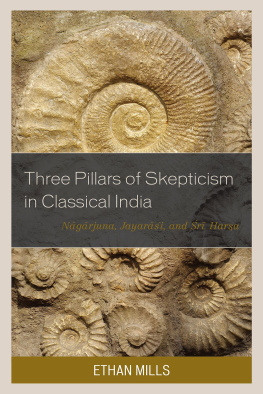
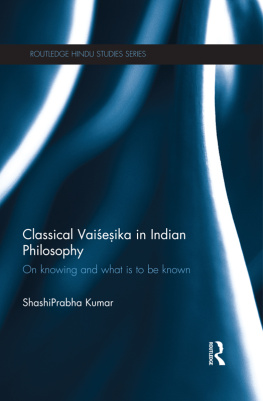
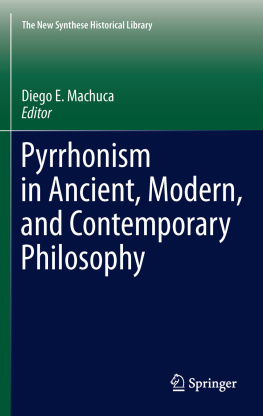
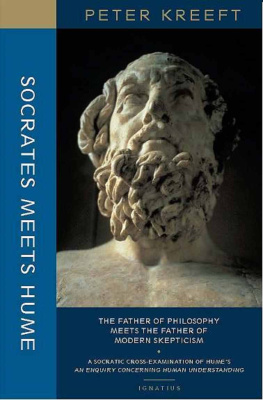
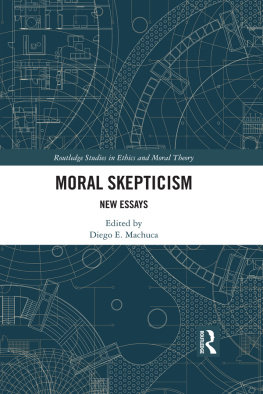
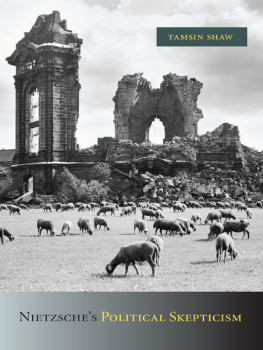
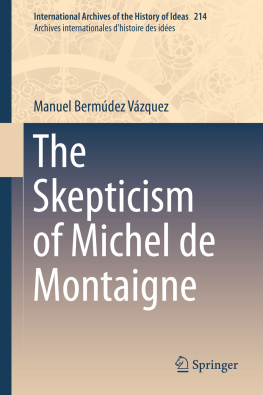

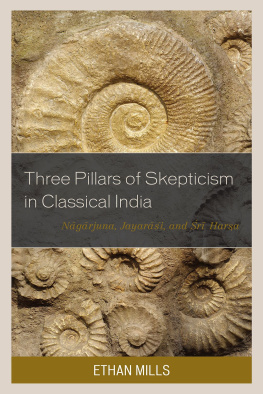

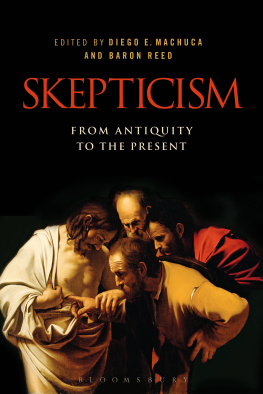

 The paper used in this publication meets the minimum requirements of American National Standard for Information SciencesPermanence of Paper for Printed Library Materials, ANSI/NISO Z39.48-1992.
The paper used in this publication meets the minimum requirements of American National Standard for Information SciencesPermanence of Paper for Printed Library Materials, ANSI/NISO Z39.48-1992.